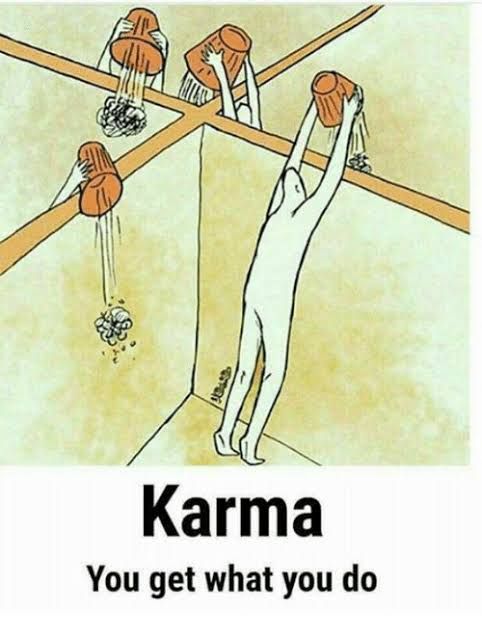Karma Is Coming For You!
Feb 07, 2019 • 49 views
Nowadays everyone uses the word karma irrespective of their belief in it. Even people who go against karma aren't afraid of mentioning it to others. So what exactly does karma mean? It's just the modern version of the proverb "you reap what you sow."

In ancient times, karma means an 'act'. It had no other ethical or moral significance. Later on, the term was more and more related to ethics and morals of life. Soon Karma meant two main things within Indian philosophy.
It encourages people to live a moral life.
It explains why evil things happen (evil in the sense, unpleasant)
Everyone ends up as the wrong guy in someone's life. Then karma should probably hit almost everyone. Also, the term karma should not be seen as an act of revenge taken upon someone due to their activities.
"How people treat you is their karma; how you react is yours." – Wayne Dyer
Karma is the response to the stimulus. The response need not be huge every time. For example, you may have not respected someone. As a result, you lose your respect somewhere else. You might have lost it to the same person whom you disrespected. So karma has already played a role here.
Most people lose their hope in karma, just because the response was not quite clear to them. Some still see the concept of karma as made up one.
I trust karma and I don't care even if it's just made up stuff because
If karma fails to hit you, then I will
